For those that don't know Zeno - what is the brand about and what are the wines you are making?
Zeno is all about making prestige alcohol-liberated wines. In today's health-conscious world, the demand for alcohol-free beverages is soaring, and we like to think Zeno is revolutionising the perception of non-alcoholic wines. It offers a new experience for those who wish to enjoy the finer things in life without the consequences of alcohol.
Zeno was born out of a desire to create high-quality option when it comes to alcohol-free wines, a vision shared by myself and co-founder David Hodgson. We joined forces with our partner winery in Spain and a team of experts, including a leading Master of Wine to help with our initial trials.
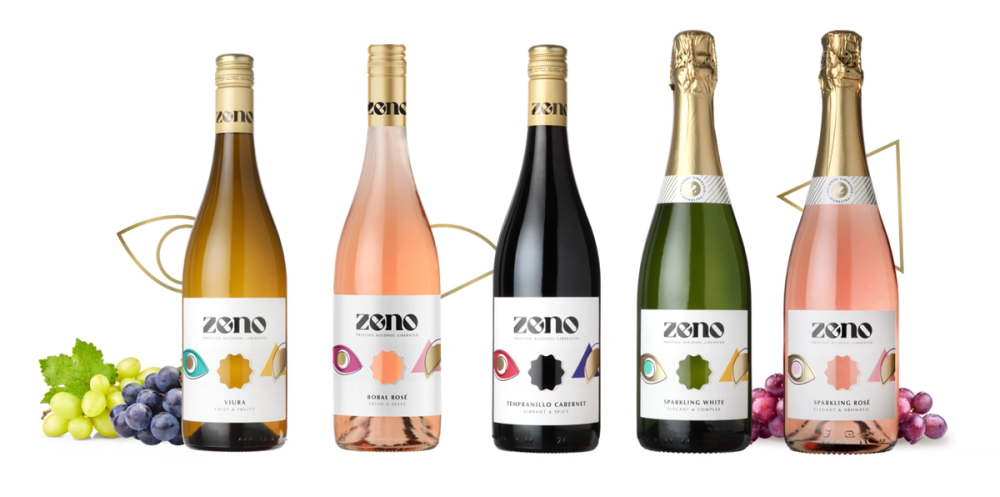
Zeno is made using the same vinification disciplines as a traditional wine says Will Willis
We think our approach is unique. We want to avoid the common practice of using sweetness to mask the absence of alcohol, we pioneered new techniques to maintain the texture, flavour, and aromatics that wine lovers yearn for. The result is a range of wines that can stand proudly alongside their alcoholic counterparts.
One of few true “estate” alcohol free wine brands, the Zeno team starts in the organic La Carrasca vineyard in Castille-La Manca, central Spain, identifying characteristics of specific varietals and viticultural practices that work best throughout the vinification and de-alcoholisation processes.
There are currently five wines in the range including:
- Zeno Viura.
- Zeno Bobal rosé.
- Zeno Tempranillo Cabernet.
- Zeno Sparkling NV.
- Zeno sparkling rosé NV.
We are releasing 250ml cans for the two NV Sparkling Wines in July and are also trialling 125ml single serve still wines for summer festivals etc
A “next level” red is in the pipeline, for scheduled autumn 2025 release. A barrel aged Tempranillo with gastronomic focus – sophisticated and complex.
What does the brand Zeno mean?

The brand Zeno is named after the Greek philosopher who championed moderation in life
The Zeno brand has philosophical roots. Zeno was an ancient Greek philosopher who advocated living a virtuous life, in harmony with nature, by embracing four virtues: moderation; wisdom; courage and justice. These virtues underpin everything the Zeno “wines of virtue” team does, from organic vines to the glass.
* Moderation reminds us that less can indeed be more. This refers to balance, which also reflects a life free of excess or scarcity.
* Wisdom means drawing on experience & knowledge to make sound decisions.
* Justice inspires fairness & inclusivity for all who choose balanced wellness without sacrificing indulgence.
* Courage empowers us to challenge convention, standing up for innovation while staying true to tradition.
Our slogan is a Zeno quote - “Happiness is a good flow of life.” This reflects the peace of mind that comes from living a life of virtue in accordance with reason and nature.
Another Zeno quote - “The obstacle is the way”- became our mantra as we tackled the many challenges faced while working to realise the team’s vision of making alcohol-free wines for the wine enthusiast.
You are focusing on 0.5% ABV vs 0% why is that and what difference do you see between the two in terms of the offer?
Even using the world’s most advanced de-alcoholisation technology, we have found that true zero at this stage can’t give us the texture and aromatic profile that we require for our styles. The aroma compounds and other molecules found in the removed alcohol, form the “essence” which is partially re-introduced to give varietal character and structure.
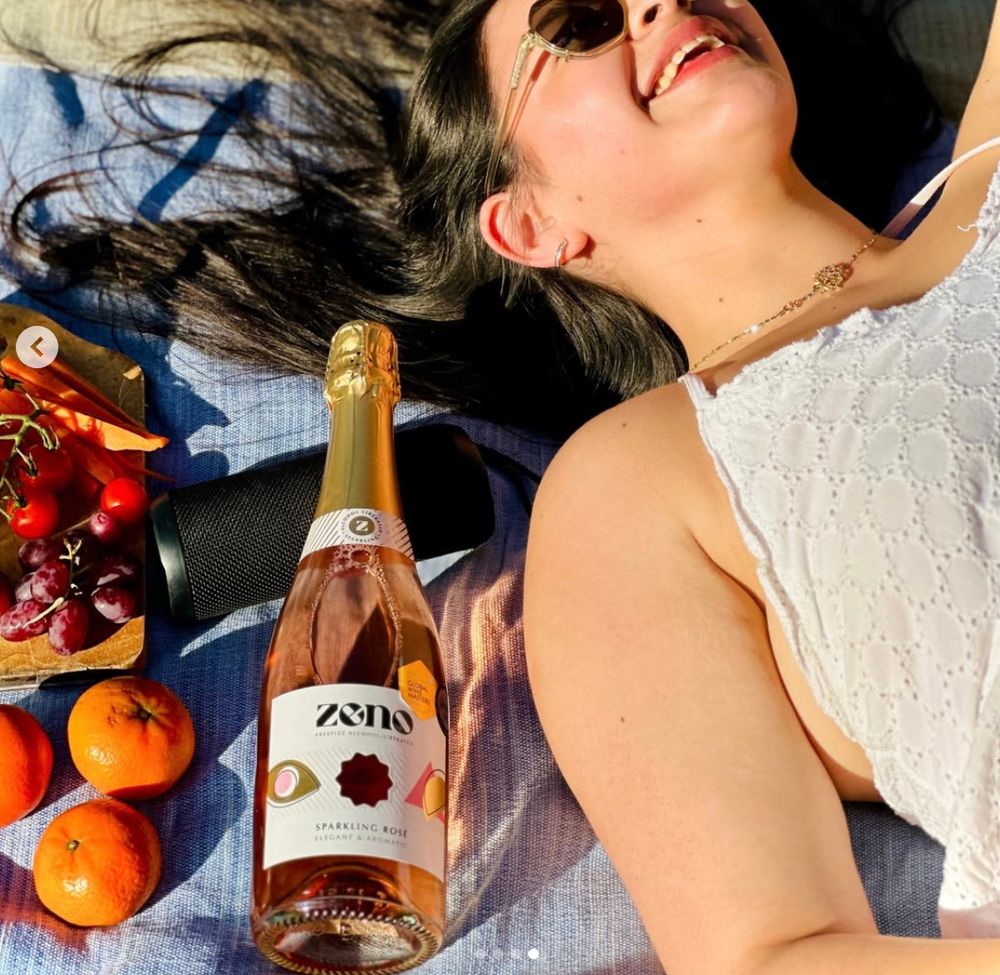
Cutting through to target consumers with a quality alcohol-free product is key to Zeno's success
We find that between 0.2 & 0.3% is most suitable for our current styles.Each wine is meticulously put together so that each 0.01% ABV has the price impact that we want to provide the best tasting wine.
Advances in technology, with investment growing because of demand, will yield further opportunities in aroma & flavour extraction and product sophistication.
People might be surprised to read you are working with single estate vineyards to make your 0.5% wines - why do you do that?
We want to identify the characteristics of specific vine varieties, where location and aspect is as important as the viticultural practices used and ensure the best qualitythroughout the growing and then vinification and de-alcoholisation processes.
We pay particular attention to pH levels, acidity, tannin structure, aromatics and sugar levels in order to get the best results. Aromatic, vibrant white and robust red grape varietals with defined berry and robust tannin characters give the best results.
Zeno has achieved great success with Tempranillo, Cabernet, Grenache, Viura, Macabeo and even the lesser-known Bobal for our recently released and widely acclaimed rosé. On-going research into viticultural and winemaking techniques will enhance sophistication in Zeno wines across the board.
We wanted to work in Spain because of its rich viticultural heritage, climate, diverse range of grape varietals, advanced sustainability practices, technical resources and proximity to main markets.Working with a single organic estate ensures consistency with quality and continuity with improvement at every level and from vintage to vintage.
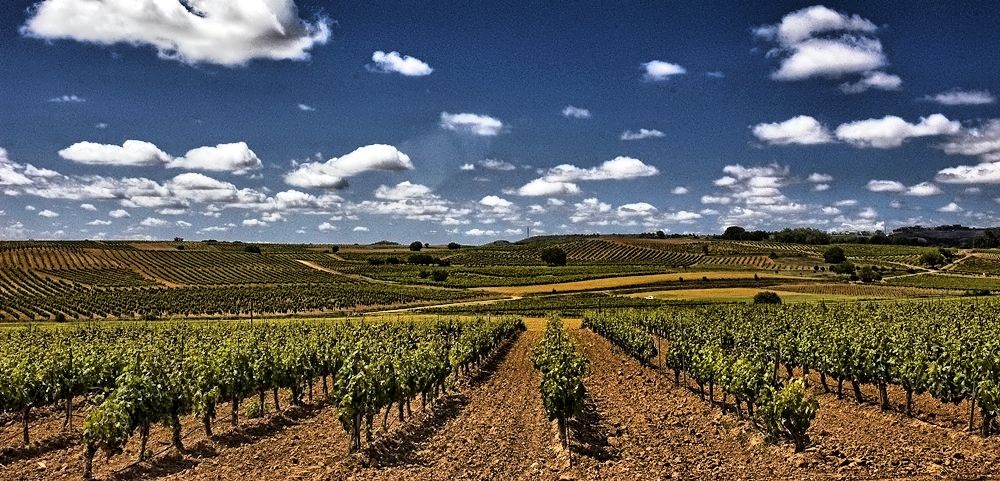
The grapes for Zeno are sourced from Spain's Castilla La Mancha wine region
It’s impossible to achieve that with bulk wines sourced from the open market, de-alcoholised separately and bottled elsewhere. With a family company who have been working this land for more than 170 years and were really invested in our project and with the de-alcoholisation partner less than an hour away, we found the perfect location and partners to help bring Zeno to life.
How do you get your wines down to 0.5% - what process do you use and why do you think that is the most effective?
We have collaborated with Bev Zero, the world leader in de-alcoholisation technology, since our R&D stage. Together we developed techniques to get the most from the process. Their latest “GoLo’ technology yields terrific results.GoLo uses lowest temperature high vacuum distillation, gently removing alcohol in a single pass without any direct heat contact, which is vital. It is also energy and CO2 efficient.
The high quality ”output” wines are then finessed for optimum balance, mouthfeel & texture according to the Zeno style specifications.
What do you think the perception is in the trade and consumers towards 0.5% wines and is that changing?
Early alcohol-free wines tended to use surplus bulk wines, had less efficient de-alcoholisation techniques an d producers had less experience, often using sweetness to fill in the gaps on the palate. This understandably put a large number of consumers off and we’ve been working hard to win them back, which is working as they discover better quality, dedicated alcohol-free producers like ourselves who are driven by passion, invest in R&D and use superior fruit sourcing and cellar techniques.
For alcoholic wines there is a complete understanding of the quality vsprice ratio, in as much as you fully accept that the quality of a wine at £4 per 75cl will be vastly different compared to a wine at £10, from any country in the world. For some reason this understanding and acceptance is only now starting to be seen with alcohol-free wines. The consumer is waking up to what is available. We now need the rest of the trade to see it as well.
What do you think it will take to make these style of wines more popular and more widely distributed?
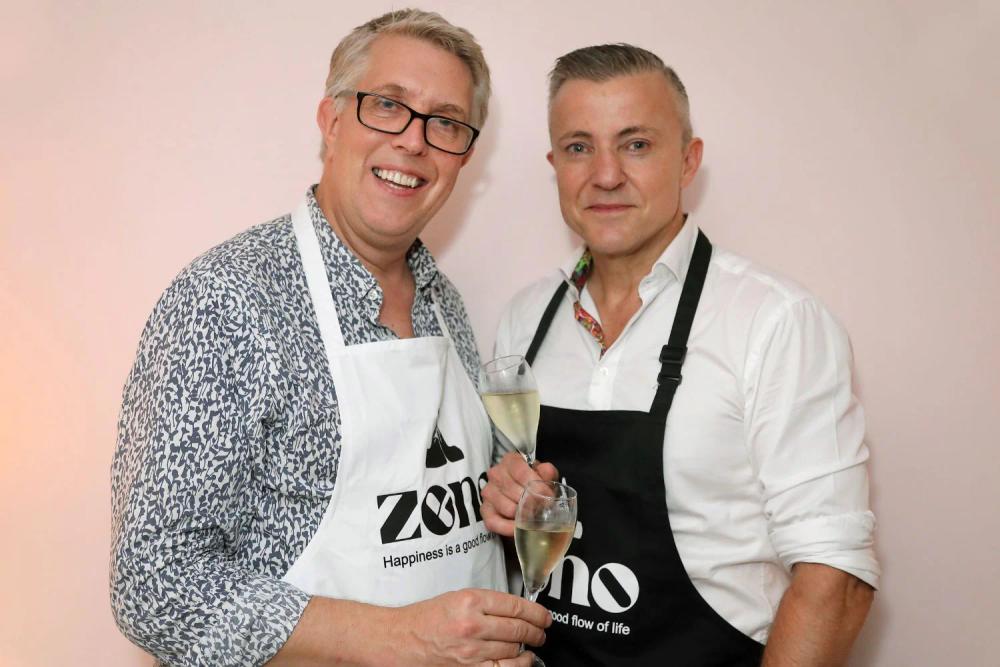
Zeno founders Will Willis and David Hodgson
Consumer confidence is returning as overall quality of the segment rises and the breadth of styles widens. There’s a distinct line now between the mass market, sugar laden cheaper alternatives and brands like Zeno who focus on sophistication, balance and food pairing.
Competitions can be a help or a hinderance. Those who take the time to understand the context of judging alcohol-free wines (and stop looking for alcohol or being seduced by sugar) are valuable endorsements and encourage producers to continue to evolve their styles and techniques. They also reassure trade buyers and consumers which is important in this young and dynamic segment.
The growth trajectory of consumer demand due to the importance of wellness to consumers & interest in good alcohol-free drinks hasn’t been reflected in the space given to alcohol-free beverages in retail and on-trade channels.
Increasing availability and choice will drive acceptance, trialling and sales. Increased visibility, tasting opportunities and education are also needed so consumers can make informed and confident choices, especially taking into account the global cost of living pressure on disposable income.
The pro-active and forward-thinking distributors and traditional gatekeepers are seeing the benefits already. The on-trade is finally starting to see the GP benefits of turning their water sales into wine – just by offering a good quality alcohol-free option.
What response have you had and where have you had most success with trade customers and channels?
We are always humbled by the response to our wines when people taste them, driving our “sips to lips” campaign to engage new consumers.Trade buyers are coming on board more after initially being highly sceptical of the revenue potential of the segment.
In the UK, grocers are slowly increasing choice and listing higher quality and priced brands. The on-trade has been surprisingly sluggish with a lot of the groups sitting on their hands and only listing a token few mass market alcohol-free brands which is counter intuitive as informed customers expect more.
What are your personal backgrounds and how did you get to be working together?
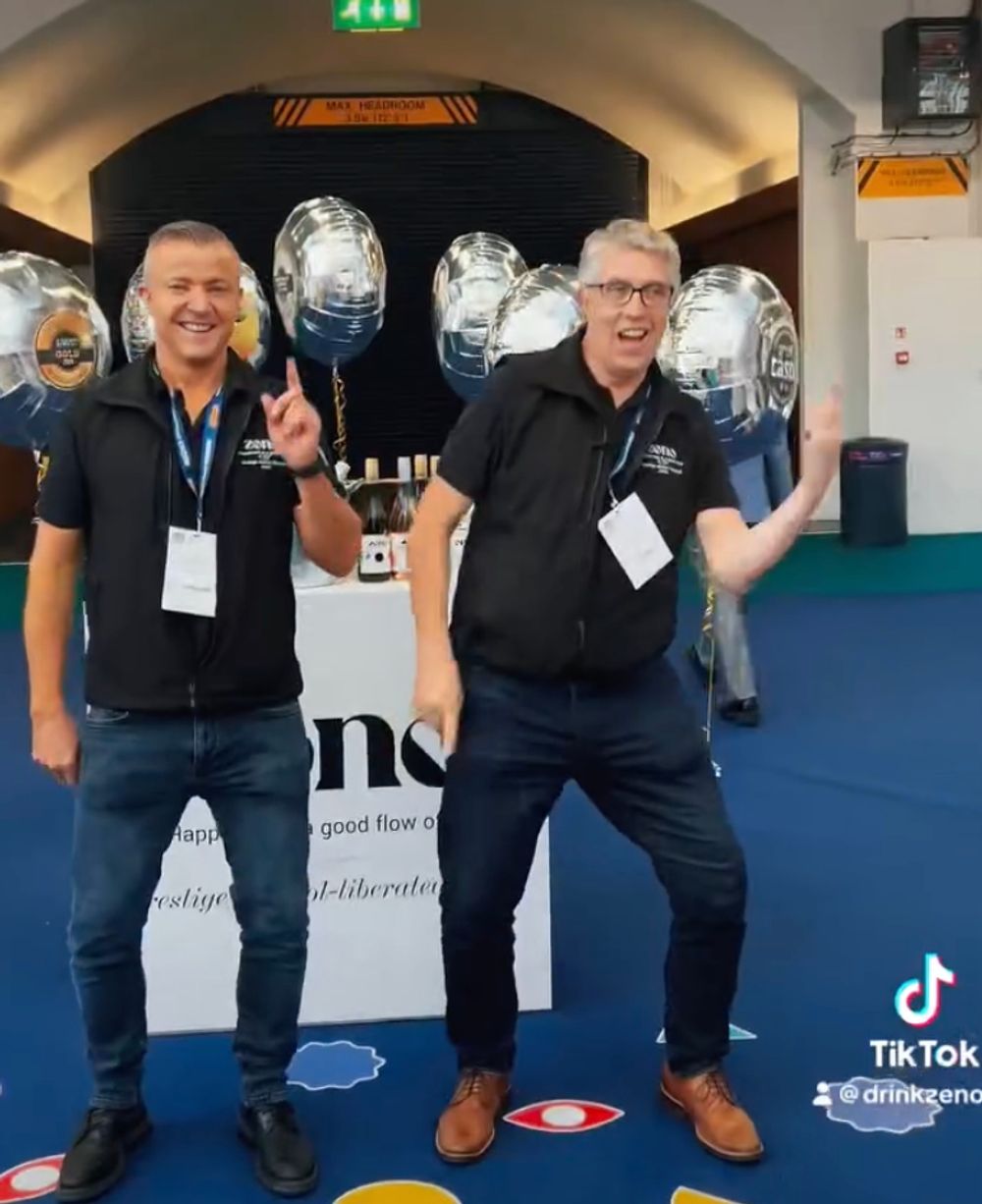
Will Willis and David Hodgson both bring their lively personalities to the brand with a series of fun Tik Tok and Instagram posts
David and I are both wine trade veterans with international fine wine brand experience, commercial cognition, a hands-on approach and passion for wine.
We crossed paths at a trade show in Helsinki in 2019 when we were both representing our own traditional brand stables. David showed me the alcohol-free segment research he had been working on noting the growing groundswell in the alcohol-free beverage sector and we continued to discuss it late into the night.
I had already been involved in the early stage development of a sparkling 0.0% project but the burning question was “why can’t anyone seem to make a decent alcohol-free wine?”. We couldn’t resist the challenge of giving it a go.
While David’s background leans more towards strategy, brand development and marketing, I bring more extensive commercial experience and technical knowledge to the table.
What are the big learnings you have made bringing the wines to market?
We never anticipated that it would take three years to get to a stage where we were happy to release a finished product. Covid lockdowns, frustration with product trials and dwindling cash reserves nearly killed the project. However, good fortune did shine occasionally and was enough to keep us going. A technical breakthrough, finding our winery and de-alcoholisation partners and by then a philosophical brand that insisted that “the obstacle is the way” (it became our mantra) kept us striving to achieve our goals and never give up.
The business, being a startup, faced challenges with cashflow and investment however we just managed to get by, being self-funded to this day. Without a full year of robust company accounts, financial support for young businesses is a myth.
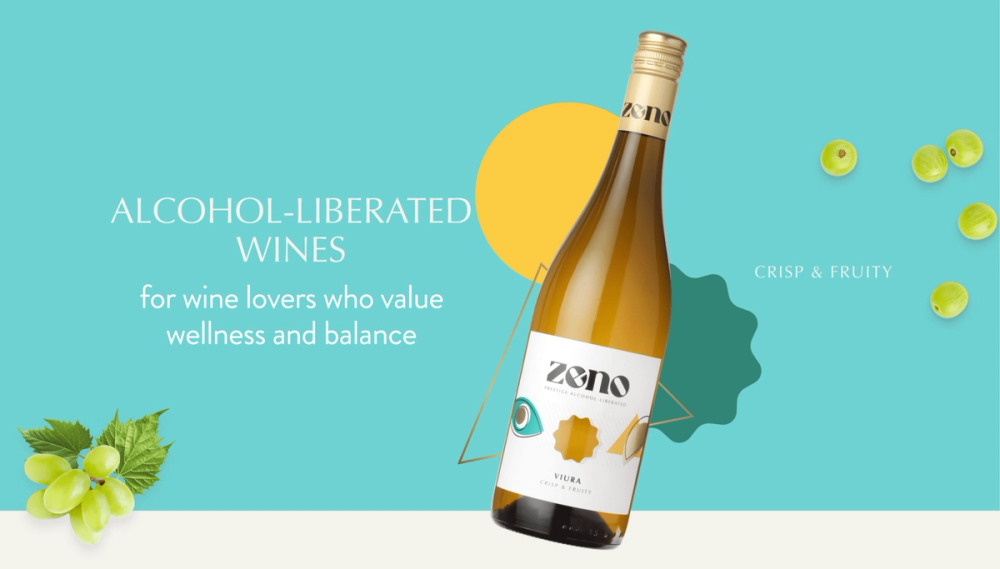
Phasing production volumes, timing and forecasting for a young segment with new distribution channels and a lack of historical data has been challenging. Thankfully, our production and early trading partners supported our vision and helped us whenever possible.
What have been the big breakthroughs to date?
There have been a few:
- Achieving our style goals.
- Being featured on national television several times (totally unsolicited).
- Our listing with Waitrose followed by a listing with Fullers Pub Group.
- Launching in more than 10 export markets in our first two years.
- Incredible competition performance.
- Engaged production partners.
What have been the biggest challenges?
- Cashflow is king.
- Achieving our stylistic goals while minimising residual sugar levels.
- Consumer engagement.
- Trade engagement and getting past the traditional (crusty) gatekeepers.
Do you think the new duty regime in will help promote and push no and low alcohol wines even more?
Increased alcohol duty on traditional wines will make alcohol-free wines appear better value and encourage trialling and engagement.
* You can find out more about Zeno at its website here.






























